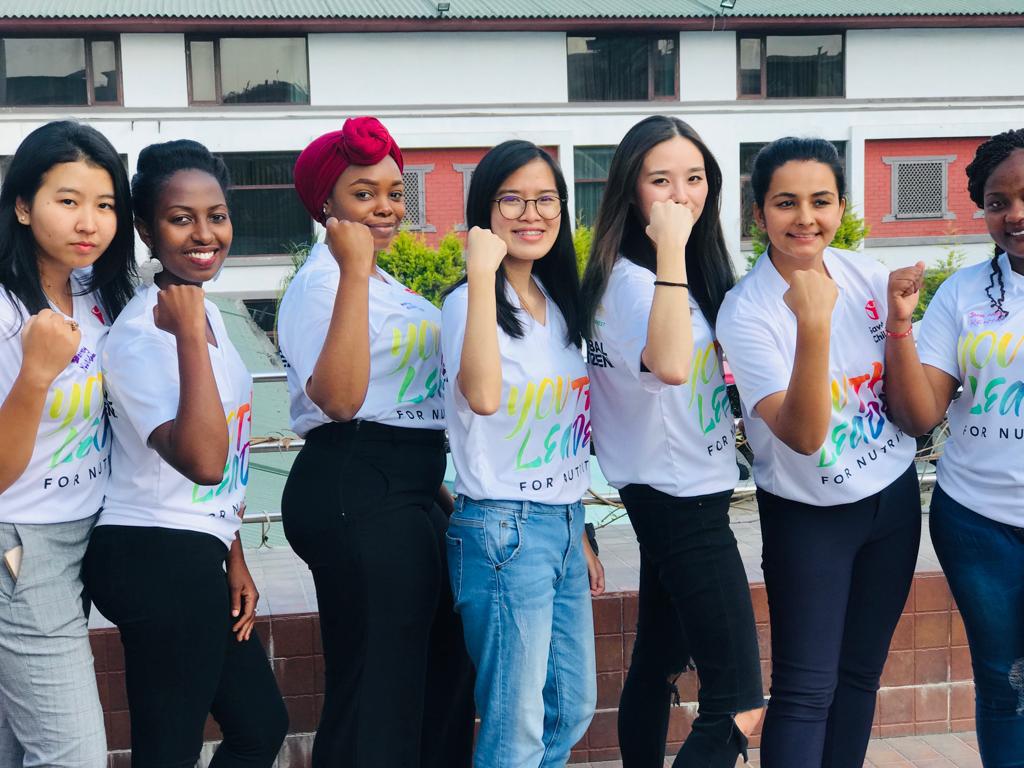2021: A year overflowing with opportunities
It’s 2021, and although very little may have changed so far in comparison to 2020 (come on, vaccines!), there has already been a huge shift: it is now officially the Year of Action for Nutrition.
Last year, the COVID-19 pandemic resulted in devastating losses to the decades of progress on nutrition, but this year can be different. 2021 is overflowing with opportunities for the world to take meaningful action to reverse those losses. Together, we can build back better – with a focus on nutrition as a fundamental part of recovery.
Throughout the year’s key events, including the World Health Assembly, the Food Systems Summit, COP26 and UNGA, and culminating in the Nutrition for Growth Summit in December, governments and businesses will have the opportunity to demonstrate their commitment to a world free from malnutrition in all its forms by making new policy and financial commitments.
It is crucial that any new nutrition commitments take into account the perspectives and experiences of young people – and for this reason, it is vital that young people are positioned at front and centre of nutrition advocacy.
Why youth voices are important
The health and nutrition of adolescents are becoming global priorities. There are over 1.2 billion adolescents aged 10-19 in the world1 and nearly a quarter of the people in Sub-Saharan Africa are aged 10 to 192. Different stages of the life cycle dictate differing nutrient needs. Due to the spurt of growth that occurs in adolescence, several nutrients are at greater deficiency risk, including iron and calcium. To develop to their optimal potential, it is vital that adolescents choose nutritionally sound diets. This may spell the difference between health and risk of disease in later years.
Adolescents themselves have the best understanding of young people’s needs, how to address them, and how to get them involved. Because of this, youth voices can be an incredibly powerful force for bringing about the changes they want to see.
Listening to young people not only makes sense when considering nutrition interventions for children and young people – it is also an ethical issue. Children and young people have a right to participation and to be heard. They will inherit the problems that the world is currently facing (and in some cases, creating), so their solutions should be taken seriously. But as Mike Khunga, Youth Leader for Nutrition from Malawi, so elegantly put in a recent blog, “[young people] are the future, but we are also the present.” They are often hit hardest by global challenges such as pandemics and economic recessions, and their lived experiences need to be at the forefront of conversations about how to solve these challenges.
How the Youth Leaders for Nutrition have been raising their voices
Since 2018, the SUN CSN Youth Leaders for Nutrition have been raising their voices on behalf of young people all around the world to advocate for an end to malnutrition in their own communities and globally. The Youth Leaders have a wealth of experience speaking at high-level events and conferences such as the UN General Assembly, SUN Global Gathering, IFAD, and many more.
Throughout the COVID-19 pandemic, the Youth Leaders have continued to exercise their influence by speaking at online events, writing blogs, and much more, working with organisations including UNICEF and Save the Children. The Youth Leaders even set up their own webinar for World Food Day 2020!
Working with the Youth Leaders for Nutrition
If you have an upcoming event or other advocacy opportunity and you would like to work with the Youth Leaders for Nutrition, please download and complete our Opportunity Form and send it to Hannah Taaffe, Advocacy and Youth Advisor at the SUN CSN Secretariat.
Youth Leader Opportunity Application Form
1 UNICEF, October 2019 (https://tinyurl.com/29fje3s9)
2 UNICEF, October 2019 (https://data.unicef.org/topic/adolescents/demographics/)


